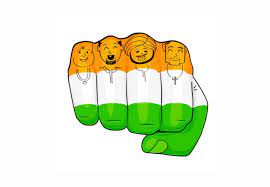National integration refers to the process of bringing together diverse groups of people, cultures, and regions into a cohesive and unified whole. India is a diverse country with multiple languages, religions, and cultures, making national integration a key challenge. This article will explore the challenges to national integration in India and strategies to promote it.

Diversity in India
India is a country with great diversity, with more than 1.3 billion people speaking over 1,600 languages and dialects. The country is home to several religions, including Hinduism, Islam, Christianity, and Sikhism. The diversity of the country presents a major challenge to national integration.
Challenges to National Integration
The challenges to national integration in India:
- Regionalism: Regionalism is a major challenge to national integration in India. The people of different states have their own distinct cultures, languages, and identities, which can lead to regional tensions and conflicts.
- Communalism: Communalism, or the tendency to identify with one’s religion or community, is another challenge to national integration. It can lead to social and religious tensions and conflicts.
- Casteism: Casteism, or the practice of discriminating against people based on their caste, is another challenge to national integration. It can create divisions and conflicts within society.
Strategies for National Integration
The following strategies can be used to promote national integration in India.
- Education: Education can play a significant role in promoting national integration. The curriculum should include lessons on the diversity of India and the need for tolerance and mutual respect for different cultures, religions, and communities.
- Media: The media can play a significant role in promoting national integration by showcasing the diversity of India and the need for unity and respect for diversity.
- Political will: The political leadership must be committed to promoting national integration and take steps to ensure that people from all regions, religions, and castes are treated equally and fairly.
- Cultural exchange: Cultural exchange programs can promote national integration by providing opportunities for people from different regions and cultures to interact with each other and learn about their traditions and customs.
- Community participation: Community participation can help promote national integration by encouraging people to come together to celebrate festivals and events that are important to all communities.
Conclusion
National integration is an important goal for India as it seeks to build a cohesive and unified nation out of its diverse population. While the challenges to national integration are many, there are strategies that can be used to promote it. By working together and promoting mutual respect and understanding, India can build a strong and unified nation that is inclusive of all its citizens.
Important Links